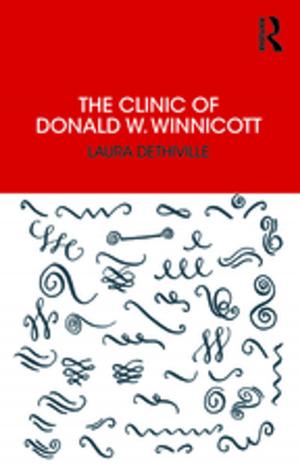Moral Responsibility
The Ways of Scepticism
Nonfiction, Religion & Spirituality, Philosophy, Ethics & Moral Philosophy| Author: | Carlos Moya | ISBN: | 9781134194568 |
| Publisher: | Taylor and Francis | Publication: | September 27, 2006 |
| Imprint: | Routledge | Language: | English |
| Author: | Carlos Moya |
| ISBN: | 9781134194568 |
| Publisher: | Taylor and Francis |
| Publication: | September 27, 2006 |
| Imprint: | Routledge |
| Language: | English |
We are strongly inclined to believe in moral responsibility - the idea that certain human agents truly deserve moral praise or blame for some of their actions. However, recent philosophical discussion has put this natural belief under suspicion, and there are important reasons for thinking that moral responsibility is incompatible with both determinism and indeterminism, therefore potentially rendering it an impossibility.
Presenting the major arguments for scepticism about moral responsibility, and subjecting them to sustained and penetrating critical analysis, Moral Responsibility lays out the intricate dialectic involved in these issues in a helpful and accessible way. A well-written and lively account, the book then goes on to suggest a way in which scepticism can be avoided, arguing that excessive pre-eminence given to the will might lie at its root.
Offering an alternative to this scepticism, Carlos Moya shows how a cognitive approach to moral responsibility that stresses the importance of belief would rescue our natural and centrally important faith in the reality of moral responsibility.
We are strongly inclined to believe in moral responsibility - the idea that certain human agents truly deserve moral praise or blame for some of their actions. However, recent philosophical discussion has put this natural belief under suspicion, and there are important reasons for thinking that moral responsibility is incompatible with both determinism and indeterminism, therefore potentially rendering it an impossibility.
Presenting the major arguments for scepticism about moral responsibility, and subjecting them to sustained and penetrating critical analysis, Moral Responsibility lays out the intricate dialectic involved in these issues in a helpful and accessible way. A well-written and lively account, the book then goes on to suggest a way in which scepticism can be avoided, arguing that excessive pre-eminence given to the will might lie at its root.
Offering an alternative to this scepticism, Carlos Moya shows how a cognitive approach to moral responsibility that stresses the importance of belief would rescue our natural and centrally important faith in the reality of moral responsibility.















